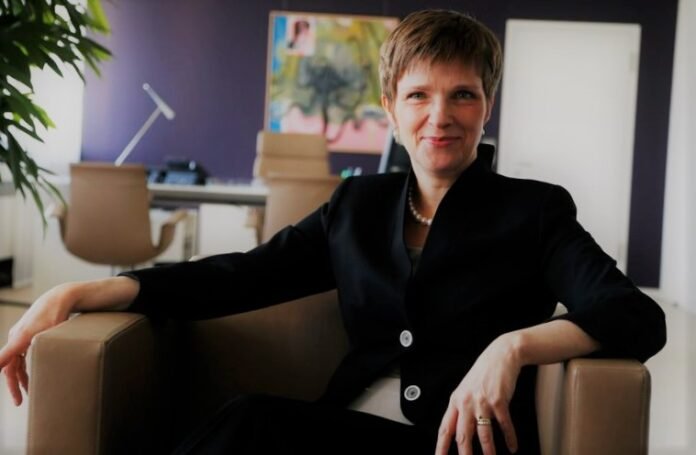The Enigmatic Front-runner: Claudia Buch
In the clandestine realm of ECB succession, whispers of a potential successor to Andrea Enria, the outgoing supervisory chief, abound. Insiders suggest that Germany’s Claudia Buch, the Bundesbank’s vice president, might be the leading luminary. The ECB, however, remains tight-lipped on the matter.
The Struggle for Gender Parity
Unquestionably, the ECB’s top echelons suffer from a disconcerting gender gap. A mere two women populate the institution’s 26-member Governing Council, and the Supervisory Board’s gender balance is only marginally less skewed. Insiders contend that, to remedy this imbalance, the next supervisory chief ought to be a woman. Nevertheless, the qualifications of the potential candidates take precedence over their gender.
A Triumvirate of Talent
The ECB succession drama features three heroines: Margarita Delgado, Sharon Donnery, and the aforementioned Claudia Buch. Each boasts an impressive resume, making the race an electrifying affair.
Margarita Delgado: The Spanish Strategist
Delgado, the Spanish central bank’s deputy governor, stands as a formidable contender. However, her chances may be hampered by Spain’s current hold on the ECB’s vice presidency.
Sharon Donnery: The Irish Maverick
Donnery, a deputy governor at Ireland’s central bank, is another powerful player in this high-stakes game. Yet, she is viewed as an underdog, having been previously snubbed in favor of Enria. Moreover, Irish officials already occupy several key finance roles.
Claudia Buch: The German Juggernaut
With Germany’s backing and ample management experience under her belt, Buch emerges as the favorite. Her limited exposure to supervision, however, could be a chink in her otherwise-impenetrable armor.
A Covert Conclave: The Selection Process
Behind closed doors, the selection process remains shrouded in secrecy. Insiders predict a formal vacancy announcement in the autumn, followed by a rigorous selection procedure. Ultimately, the Governing Council will select the new chair, subject to the European Parliament’s approval and a formal appointment by the European Union Council.











